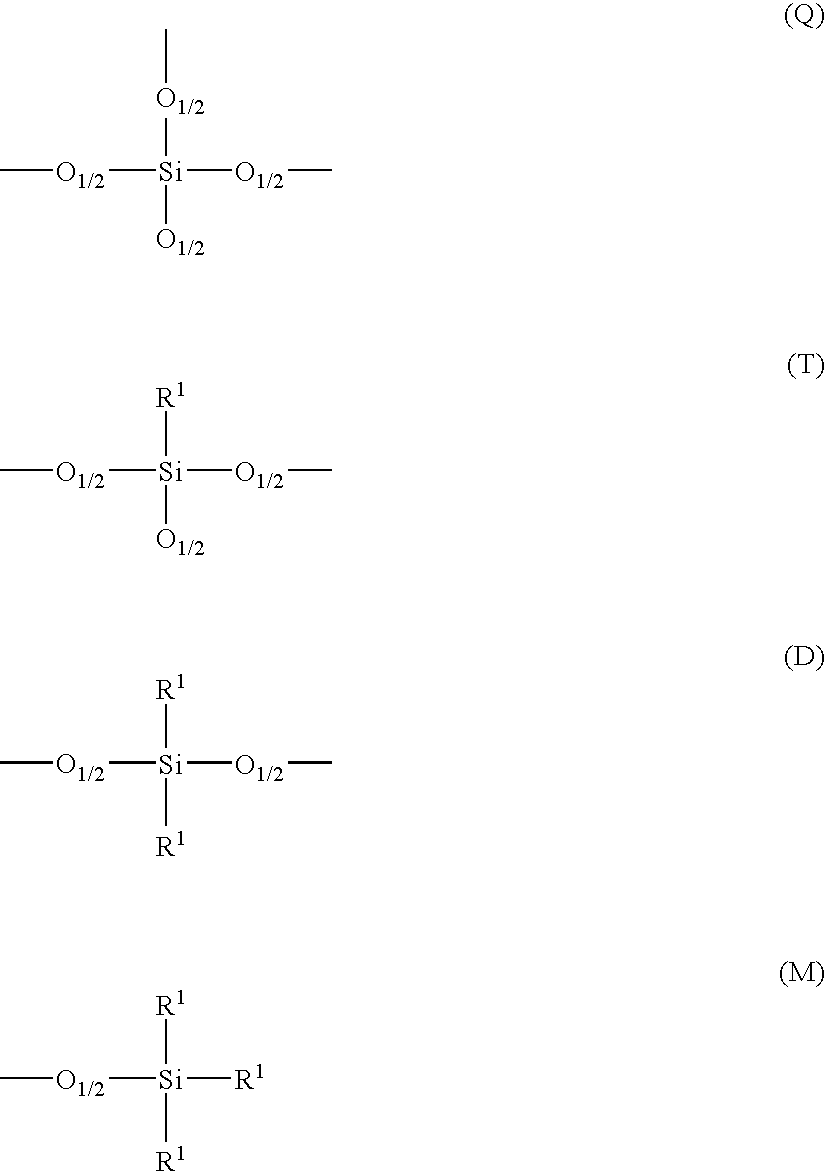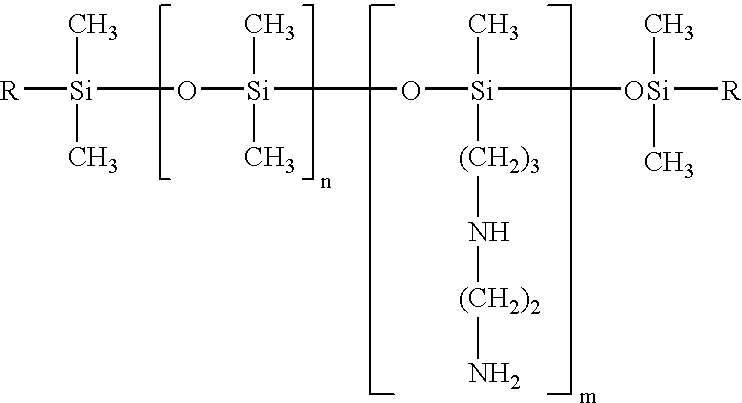Liquid laundry detergent compositions with silicone blends as fabric care agents
a technology of fabric care agent and liquid laundry detergent, which is applied in the direction of detergent dyes, detergent compounding agents, inorganic non-surface active detergent compositions, etc., can solve the problems of ineffective work of liquid laundry detergent, unsatisfactory spreading, and insufficient emulsion stability
- Summary
- Abstract
- Description
- Claims
- Application Information
AI Technical Summary
Benefits of technology
Problems solved by technology
Method used
Image
Examples
examples
[0134]The following non-limiting examples are illustrative of the present invention.
[0135]The final liquid laundry detergent composition is formulated by combining a pre-formed silicone blend, which is optionally emulsified with an emulsifier, with at least one surfactant and further at least one additional requisite non-silicone laundry adjunct. The surfactant and the laundry adjunct may optionally pre-mixed prior to combination with the, optionally emulsified, pre-formed silicone blend.
Fabric Cleaning Premixes A1 and A2 and A3:
[0136]
wt %(raw materials at 100% activity)A1A2A3C13-C15 alkylbenzene sulphonic acid13.05.55.5C12-C15 alkyl ethoxy13.013.0(1.1 eq.) sulphateC14-C15 EO8 (1)9.0——C12-C13 EO9 (2)—2.02.0C12-C14 alkyl dimethyl1.51.01.0amineoxide (3)C12-C18 fatty acid10.02.02.0Citric acid4.04.04.0Diethylene triamine pentamethylene0.3——phosphonic acidHydroxyethane dimethylene0.1——phosphonic acidEthoxylated polyethylene1.01.01.0imineEthoxylated tetraethylene1.00.50.5pentamineDi Ethyl...
PUM
| Property | Measurement | Unit |
|---|---|---|
| particle size | aaaaa | aaaaa |
| median size | aaaaa | aaaaa |
| mean particle size | aaaaa | aaaaa |
Abstract
Description
Claims
Application Information
 Login to View More
Login to View More - R&D
- Intellectual Property
- Life Sciences
- Materials
- Tech Scout
- Unparalleled Data Quality
- Higher Quality Content
- 60% Fewer Hallucinations
Browse by: Latest US Patents, China's latest patents, Technical Efficacy Thesaurus, Application Domain, Technology Topic, Popular Technical Reports.
© 2025 PatSnap. All rights reserved.Legal|Privacy policy|Modern Slavery Act Transparency Statement|Sitemap|About US| Contact US: help@patsnap.com



